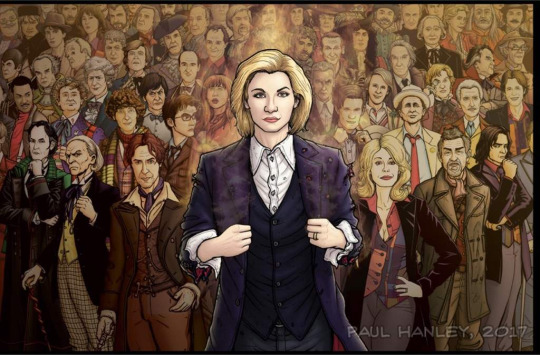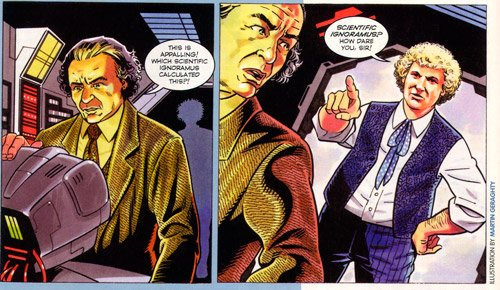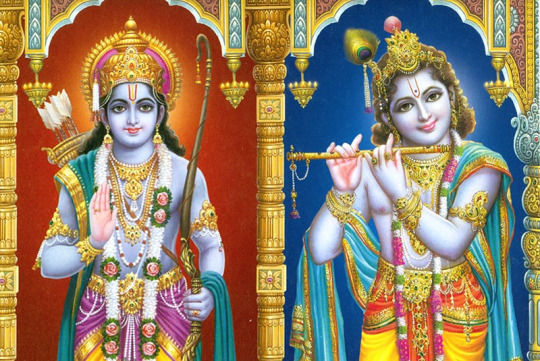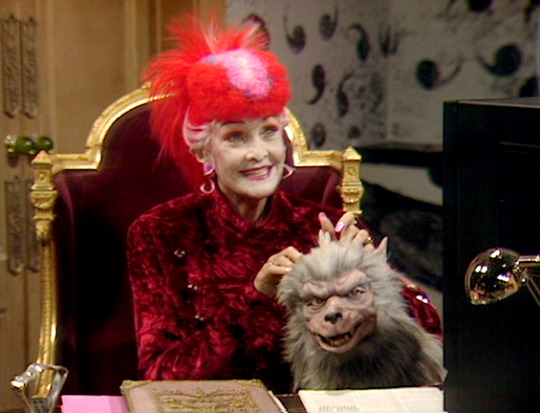#like cops are tools of the state but the avatar could also become a tool for evil characters if they were manipulated
Text
People who complain about the focus on cop characters in the legend of korra are valid and I agree with them but at the same time it's weird to criticise that when the avatar is a worse version of a cop
#m#the legend of korra#like not to do the zaheer was right but zaheer WAS right#the avatar is an incredibly powerful figure who also holds a lot of political power#giving that big of a responsability to one person is the key to disaster#and even if the series presents the avatars as morally good theres no guarantee that an avatar is always going to choose the right side#like cops are tools of the state but the avatar could also become a tool for evil characters if they were manipulated#maybe this is just me but i dont worry too much about the cop characters in tlok bcs the avatar is a more egregious example of this problem#EXCEPT if its about toph. she would have never become a cop
2 notes
·
View notes
Text
Persona 5, Makoto, And Cops
So, like...We can all agree that it's weird that Makoto want's to be a cop in the game right? Aside from general cop bastardry irl, there's like precisely one police officer in the entirety of P5 who's at all a clear cut good guy and even he basically just says out and out, super explicitly that the cops are like...Not great.
At BEST, at BEST, they ensure the laws are followed, but that doesn't always equate to justice being served, and it is hilariously easy for them to be made into tools of opression, and to be made into stooges of people who want to do wrong.
Like Zenkichi out and out says “You really shouldn't be a cop.”
But Makoto still want's to be, despite knowing this, despite agreeing with this, and it's a weird gap right? Of perhaps everyone in the group, she should know best how following the rules and laws can lead to people doing pretty screwed up things if her little stint stalking and then blackmailing joker and company.
And she's just a student council president you know? It's not like she has anywhere near the same authority as a police officer, and unlike Chie who (for sake of argument here) has pretty objectively Upstanding Excellent Cops in her neighborhood except for you know the one who decidedly wasn't but P4 isn't really dealing with Laws and their problems, so them not leaning into law enforcement is a problem makes sense. Dojima is a just dude trying to do his best and even here the only other cop of note is uh...A straight up monster who abused his position of authority to get away with terrible things.
But back to P5, like...The game isn't subtle about it's feelings about law enforcement. Every Single Shadow is represented in the field by varying kinds of law enforcement operative types. Guards, knights, actual cops, prison wardens, etc etc. The Ultimate Big Bad basically posits that humans can't follow the rules and for that need to be severely punished and so laws and rules more or less end up being the big bad foe here.
The motivation to be a cop is well...Painted as whole heartedly misguided at best. We never get to know anything about Makoto's dad, and he's her inspiration for that goal, but at the same time, we get to see the other daughter who I think it's safe to say ALSO had him as something of a goal and...Sae also doesn't exactly come off as a perfect avatar of justice here either.
She very clearly WANTS to be, no doubt, and the massive shock of the games events does change her trajectory, but she's been deep down in the swamp of the system and she knows intimately that well...It's a shit show at best.
So i'm circling back to it as...Why? What's the deal here with what the game is going for theme wise? The idea of internal reform I suppose is being suggested, but the game's also make it remarkably clear that that actually won't work.
I'd say even textually, not even dipping into subtext, the game is out and out saying that you cannot reform a system from the inside like that when it's that far gone. Between P5 and P5S it's made abundantly clear that even what is functionally in a metaphysical sense a hard system check of things going out of whack law wise like the phantom thieves (what with their flipping of the table) they can't actually solve the problems of the system itself being super fucked. At best they can stop it from going full on malignant, but the cancer is still there. If the people don't actually band together to overturn things that are broken, especially when it is well within their hands to do, it's not going to improve, it's not going to get better. It's a delaying action at best.
Like the Phantom Thieves can't save everyone. Akira Konoe bluntly makes it clear when he asks them and the PT can only really go...No we can't. If we knew sure, but we don't possess the ability to do that. It's outside our ability entirely to do so for everyone.
So...Back to Makoto then. It's abundantly clear, I think, that she's very much of the mold of she want's to be a cop to protect people. That's what the job description is, even if that's not what it is in reality. And I think we can at least say that she's not so naive by this point to think that if she goes in she's going to be able to reform things, not by herself. It's worth noting that her intended goal is to become a Police Commisioner, and basically form her own police branch under her rules and regulations which...Fair. Fine. There's something to be said for being an apt demonstration but it doesn't actually fix the problem at it's core does it?
Which I think pushes this into the funky grey area of things because I don't think she's precisely...Wrong to want to do this. As stated, I think the games make it abundantly clear that one person on their own can't make radical and deep changes. You need people and momentum and everyone willing to work and all that.
Certainly, I think, it would be tremendously easier to reform an organization if someone in that organization is willing to make calls against what they're doing presently. But by the same token, it's also clear if you're entering an organization to try and change that organization it's uh...Not precisely a good bet. Now there's something to be said for being willing to try it I think. While the game doesn't exactly indicate how it'll go, we can imagine that following the events of the game that Makoto wouldn't be crushed under the weight of it all and change for the worse....Though the question of if she'd be able to make her goals a reality are a different question. She has allies in that fight for sure, between Zenkichi, Sae, and (from all indications) Kaburagi, there is at least some element of reform at play, but it's also well...
The big ass conspiracy didn't exactly come out of nowhere no? And the cops at every level more or less were compromised to some level or another, and this includes these prospective allies.
But then, I guess this goes back to the Phantom Thieves themselves. They're not able to actually fundamentally fix the problems at play. They stop the worst excesses certainly, the most terminal aspects of it, although in doing so they are very nearly destroyed outright and with barely a thought. In that spirit, Of doing what you can with what you can it changes the read on the decision at least somewhat.
The Daughter of a well decorated cop, sister of a particularly well known ex prosecuter now defense lawyer, in addition to being a top honor student type, certainly gives her a bit more leverage to attack the problem, especially in the sense of getting into a position to actually change things. To say nothing of Joanna.
Taking her awakening quote into consideration
"Have you decided to tread the path of strife...? Very well. Let us proceed with our contract at once. I am thou, thou art I... You have finally found your own justice... Please... Never lose sight of it again. This memorable day marks your graduation from your false self..."
and the general story the game presents of Joanna as one who rose to the top of the organization she was in and shook it to it's core (doesn't particularly matter how true that is in reality, merely what the game says for this instance) it's clear that indeed that's her gambit, if not the specific trickster archetype she's supposed to embody (as opposed to Joker's completely outside the law rogue, Anne's Femme Fatale, or Morganna's Layabout by Day Vigilante by Night as off the cuff examples), of someone who appeared to all eyes to be a harmless simple part of the system until it was simply too late for them to do anything about it.
There is a solid arc there, and a story to be told, and I think in that light makes the continued ambition make sense especially given what we're shown of well...Uh, everything to do with law enforcement in P5.
Now if they actually communicated that idea WELL is um...probably a different story. I think it's there to see, but I can easily see this being overlooked if this was the actual intent. Though, thinking about it, the way the various trickster archetypes are shown to function isn't quite as clear as it could be, though I think there's something to say for looking into that.
Later though.
46 notes
·
View notes
Text
The Doctor with a Thousand Faces

Art by Paul Hanley
When I say the words "Fourteenth Doctor," what springs to mind? Perhaps you may say "Peter Capaldi," if you want to get super technical. Or perhaps, you may be thinking about Jodie Whittaker’s future successor. And to that point, you may already have someone in mind. Whoever he, or she, or they may be, there are key traits that you tend to expect. The Doctor may look and dress different, but they must also possess a certain "Doctoryness," about them.
Doctor Who is unique. Very few live-action shows have the ability to change their lead actor while maintaining the same character. Sure, they did it on "Bewtiched," but it never became part of the narrative. You could argue that Twin Peaks achieves this with characters like Laura Palmer returning in the form of Madeline Ferguson and Carrie Page. Or even more recently, American Gods with Media and New Media. But what about before that? What about a time before foreign Gods came to America, or certain Time Lords came to British television? What if the undying hero is part of our fabric as a species?
Within its title, Doctor Who has dared its viewers to ponder the question- "Who is this mysterious stranger?" I would venture to say the answer lies somewhere within the culture of the era. Our concept for who the Doctor is, and what they represent has changed throughout the years. As we change as a culture, our expectations of the hero change. The new gods of our pop culture mythology are still fallible, and therefore, subject to change.
It's a fairly popular fan theory that every one of the Doctors is a response to his or her predecessor. And there are even real-world moments when you can see the showrunners course-correcting a bit of bad writing. The Sixth Doctor was so loathed within the higher ranks at the BBC, that the Seventh Doctor is clearly a conscious response. Where Six was brash, Seven was quiet. While Mel was a screamer, Ace was fierce and brooding. On an even deeper level, because Doctor Who is so unique, you can also apply these course corrections narratively.

The Doctor's incarnations act more as avatars of an overarching hero of great power and intelligence. It would seem as though every regeneration is an opportunity for the Doctor, and us as an audience to ponder the identity of the Doctor. Christianity has God the Father, Jesus the Son, and the Holy Spirit, all aspects of the same one God. What does each of them imply about the other? Is each Doctor informed by an overarching consciousness? Is every aspect made in its image, or is the Doctor the sum of their parts? After all, the Doctor is still alive. We are actively watching the Doctor’s lifetime, which as of yet, is still ongoing.
In the Hindu pantheon, we get gods like Vishnu and Shiva who also take up corporeal form as avatars on earth. Much like the Doctor, these avatars are usually direct responses to their predecessor. Take Vishnu, for example. Vishnu incarnates in several different eras, usually as a response to some great imbalance in the world. But often times, their personalities explore a different aspect of Vishnu overall. As the avatar Rama, he lived so lawfully that, depending on which version of the Ramayana you prefer, cost him the love of his life. In his next incarnation as Krishna, he corrects this by being more anarchic, more bohemian, and much more free-loving. On the other hand, he was also more authoritative, as compared to Rama's gentler nature.

You could compare these two characterisations to the Third and Fourth Doctors. The Third Doctor literally worked with the military while the Fourth Doctor flew in the face of the Brigadier, hanging his feet out of the Jeep like a petulant teenager. While both Doctors have the same authoritarian streak, they're usually found in opposite directions. The Third Doctor's officiousness melts away into warmth, while the Fourth Doctor's charm burns away with his fury. All the while, each of them demands we as viewers continue to ponder the nature of our terrifying friend.
We’ll spend the entirety of the show pondering that nature. Because, as I stated before, the Doctor’s life is ongoing. Much like Vishnu sustaining the universe, Shiva’s dance has not yet ended, Brahma has not yet awakened. The dance of life continues. We can live in the past or the future, but we can never escape the present. Each Doctor stares down the barrel of their own demise. Even we as an audience see each successive Doctor as temporary. Their days are numbered, and no matter how many times you change your hair, your wardrobe, your gender, we all fear the reaper. So we focus on the now, when we’re alive. We focus on our own unique challenges.
Every son of God, it would seem, has their own cross to bear. Each hero meets a greater burden that speaks to the culture of a time. As Jodie Whittaker's Doctor is yoked with the incumbrance of sexism, so too was Colin Baker yoked with censorship. Conservative backlash has often times landed Doctor Who in the hot seat. "The Trial of a Time Lord," is a story arc that directly addressed the real-world accusations of the show's violence. In "Rosa," the Doctor goes toe-to-toe with the embodiment of a nasty internet troll in the form of Krasko.
It's funny then, to view how this response to popular culture has changed throughout the years. Ben and Polly were practically Bible thumpers compared to the real world culture of hippies that were capturing the hearts and minds of people everywhere in the '60s. In their own way, they're a couple of squares that fly in the face of what was actually "cool," at the time. Even this goes against the mercurial trickster that was the First Doctor, who bit his thumb at your fuddy-duddy schoolmaster in the form of Ian Chesterton. Doctor Who of the '80s seemed like more of a "2000 AD" comic book world, which makes sense when you consider who was Prime Minister at the time.

Not only is the Doctor's personality explored throughout these incarnations, but the symbolism surrounding the Doctor as well. The name "Doctor," itself has been explored to some depth within the show. What does being a doctor mean to the Doctor? A doctor is a person who can bring us hope. They can also bring us dreadful news. Some of us don't like seeing the doctor because death seems to follow them around. The Doctor also carries a tool as opposed to a weapon. We're given the impression that the Doctor is a person who wants to fix things. Even psychic paper is a symbol for the Doctor's anarchic streak. "Badges? Badges? We don't need no stinking badges!" Psychic paper plays to that devilish side in all of us that wants backstage access and lies on our résumé. The symbolism of the TARDIS has also changed over the years. Modern perceptions of the police may taint the image of a police box in the same way modern perceptions of America may taint the image of Captain America. However, I would like to think that both Cap and the Doctor represent the potential of what these things could become. The Doctor is what a good cop should be.

People say Doctor Who shouldn't be political, but from a historical standpoint, that's impossible. It's always had the same character, fighting for freedom from unjust capitalism, to totalitarianism, to unimaginable callousness. The Doctor has never asked what a person's sexuality was before saving their life because the Doctor is an actual hero. The Doctor doesn't have to agree with your lifestyle to agree that life is precious. What kind of Doctor would they be if they went around allowing someone to die? That's no kind of Doctor at all. This is why Doctors sometimes need people around to kick them in the ass when they're being total kumquats.
Whether we call them assistants, or companions, or friends, the Doctor's fellow travellers remain cyphers for the audience, though some more than others. While on the other hand, it would seem as though the Doctor represents something deeper, something more conceptual. Like a doctrine passed from leader to leader. "Never cowardly, never cruel." Keeping humans around to keep the leader in check. We the viewer have this abstraction of our greater self, playing companion to the strangeness that is this existence. We love these stories because they’re our history, our world, and our trajectory. Past, present, and future. They're embedded in our religions and in our myths. So we keep the tradition of storytelling alive so that we might never forget these elements within ourselves. And to remember that no matter how bad things get, to appreciate being alive now.
Hello friends! For those of you who may be wondering, yes I have posted this article already. However, I wasn't completely happy with it, so I retooled it a bit. Sometimes you gotta do that! I've been up to rather a lot since we last talked. I went to see Andrew Cartmell speak in Leeds a few weeks ago, and that was great fun. He had so many wonderful insights into his era. We're still working on K9, but things have been a bit slow because of my pal's schedule. I've still got plans to write an Eighth Doctor article, but I decided to put it off for the time being. I'd like to go a little deeper into his audios and books now that I've finished his comics. I've also got articles planned for Doctor Who in video games, Doctor Who canon, and I might start doing profiles for villains I love.Speaking of profiles, I may also start interviewing some of my favourite Whovians. I know so many avid fans of the show with their own wonderful perspectives, that I wanted to incorporate them somehow! On the Twin Peaks front, I was thinking about sharing a series of comics I've been working on. Each comic explores a different theme in the show. I've also been toying with the idea of writing about other shows. Speaking of which, who all watched Good Omens? I loved it. What did you think?
#doctor who#vishnu#rama#krishna#bbc#tardis#Thirteenth Doctor#seventh doctor#sixth doctor#trial of a timelord#rosa#third doctor#fourth doctor
15 notes
·
View notes